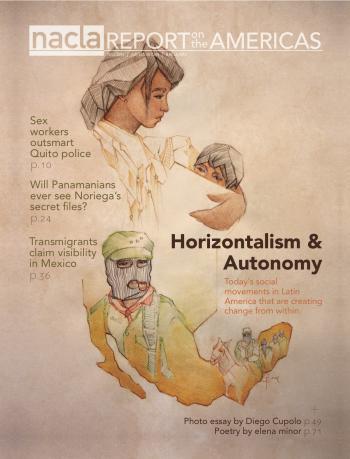From Around the Region
Although a rallying cry for the global abortion rights movement, these 17 Salvadoran women did not purposefully end their own pregnancies. Instead, they suffered a combination of obstetrical complications and poverty.
New import restrictions strain the transnational people-to-people flow of goods on which government economic reforms unofficially depend.
A new conservative talking point holds that regional newspapers are inaccurately reporting on U.S. immigration policy, creating a stampede of undocumented minors over the U.S.-Mexico border.
With raw material exports at the center of a fast-growing trade relationship with China, Latin American countries face disproportionate economic, social, and environmental risks, and should be bracing for them now.
Trans migrants claim visibility and demand dialogue in Mexico.
Panamanians may be able to see Noriega’s secret files—and to reclaim their troubled past.
Without clear legislation governing street prostitution in Ecuador, sex workers band together to battle frequent and arbitrary police crackdowns—and win.
María de la Luz Arriaga Lemus
For the past two years, teachers unions have battled the Peña Nieto administration’s creeping authoritarianism, democratizing the movement in the process.
María Pilar García-Guadilla discusses the violent protests that shook Venezuela this year, and their impact on the legacy and policy goals of Chavismo today.


